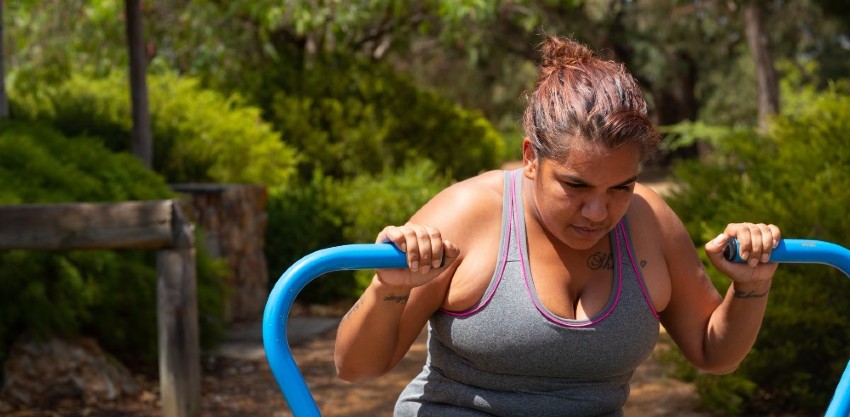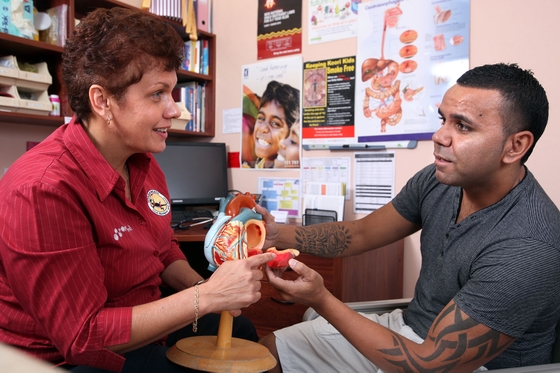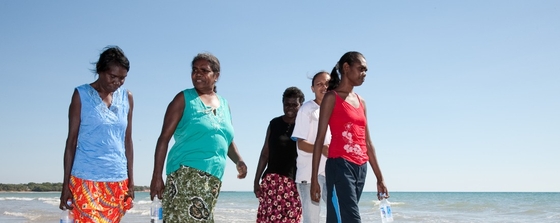
Looking after your heart
Preventing heart disease starts with knowing what helps keep your heart strong and what can hurt it.
Key takeaways
3 min read
- First Nations peoples may have a higher chance of getting heart disease.
- Some things that make you more likely to get heart disease are things you can’t change. These include your age, gender, cultural background, and family history.
- High blood pressure, high cholesterol, and diabetes also increase your chance of getting heart disease.
- The best way to know if you are at risk is to get a check-up with your doctor or visit your clinic.
- You can help protect your heart by making healthy choices every day.
You can keep your heart strong and healthy
Having a healthy lifestyle can help reduce the risk of heart disease. A healthy lifestyle includes eating healthy food, being active every day, reducing alcohol intake and being smoke-free.
Having a healthy lifestyle is good for the whole family and community, not just people at risk of heart disease.
You can help prevent heart disease by living a healthy life with help from your doctor, nurse or a health worker. Read more about these steps to protect your heart.

There are some risk factors you can’t change, like getting older and a family history of heart disease. Other risks include:

Health check for First Nations peoples
If you identify as First Nations, you can visit the clinic for a health check with your doctor.
The doctor, nurse or health worker will talk to you about ways to reduce your chance of heart disease and check blood pressure, blood sugar and cholesterol levels, and your body weight. They can offer support to stop smoking and keep a healthy weight.
Watch the Get a Heart Check (715 Health Check) animation to learn more about a health or heart check:
Calculate your heart age compared to your actual age
To better understand your risk, you can try the Heart Foundation's Heart Age Calculator.
This calculator is for people aged 35 - 75. If your heart age is older than your actual age, or you are concerned about your heart health, visit your doctor or health service for a health check.
You might also be interested in...

First Nations heart health
More First Nations people are impacted by cardiovascular (CVD) than other Australians.

What is heart disease?
Heart disease can occur 10 to 20 years earlier among Aboriginal and Torres Strait Islander peoples and can lead to long-term health problems.

What is acute rheumatic fever and rheumatic heart disease?
Rheumatic heart disease is a serious disease that causes damage to your heart valves.
Last updated04 September 2025